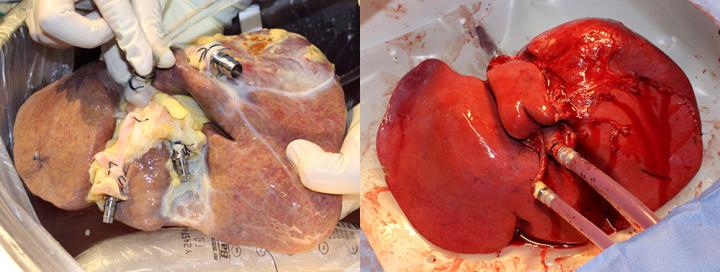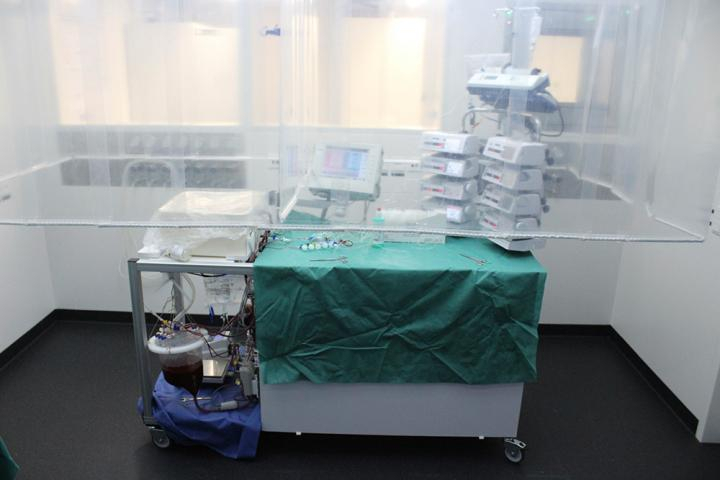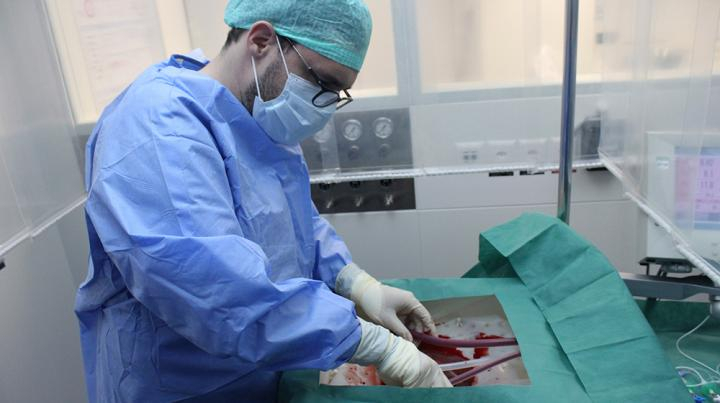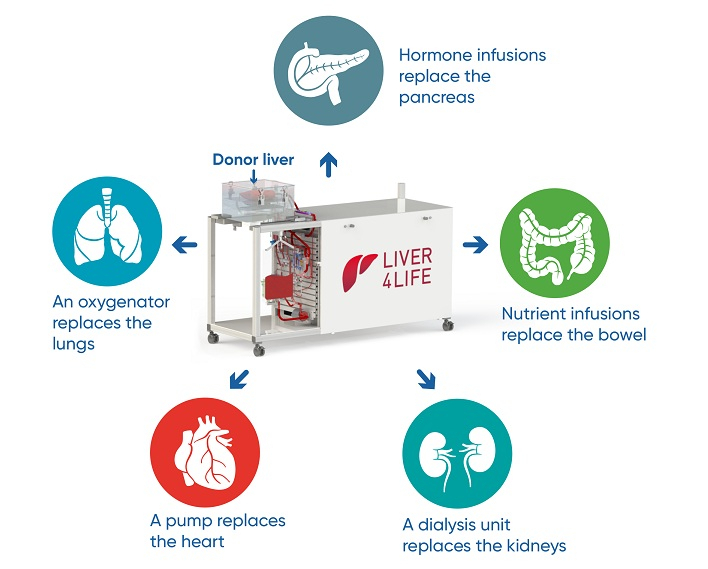Researchers have developed a machine that repairs injured human livers and keeps them alive outside the body for one week, compared to a few hours now, which is a breakthrough to make many available organs for transplantation feasible and save many lives of patients suffering from severe liver diseases or cancer.
The novel perfusion technology, livers - and even injured livers - can now be kept alive outside of the body for an entire week, said researchers from the University Hospital Zurich, ETH Zurich, Wyss Zurich and the University of Zurich, who worked on this machine. It helps in transplantation of injured cadaveric liver, initially not suitable for use in transplantation.

The innovation may regain full function for injured liver perfused in the new machine for several days. The complex perfusion system, mimicking most core body functions close to physiology, has been replicated in the new machine, said authors of the study published in the scientific journal Nature Biotechnology.
Offering what other machines cannot
The work on this project started in 2015, when livers could only be kept on the machine for 12 hours. The seven-day successful perfusion of poor-quality livers now allows for a wide range of strategies, especially in the repair of preexisting injury, cleaning of fat deposits in the liver or even regeneration of partial livers, said researchers.

"The success of this unique perfusion system - developed over a four-year period by a group of surgeons, biologists and engineers - paves the way for many new applications in transplantation and cancer medicine helping patients with no liver grafts available," explains Prof. Pierre-Alain Clavien of the University Hospital Zurich (USZ).

Liver4Life: A project from Wyss Zurich
The Liver4Life project of Wyss Zurich institute has brought together specialized technical know-how and biomedical knowledge of experts from the University Hospital Zurich (USZ), ETH Zurich and the University of Zurich (UZH).
The first study shows that six of ten perfused poor-quality human livers, declined for transplantation by all centers in Europe, recovered to full function within one week of perfusion on the machine. The new technology opens up for a variety of applications offering a new life for many patients with end stage liver disease or cancer to opt for transplantation.










